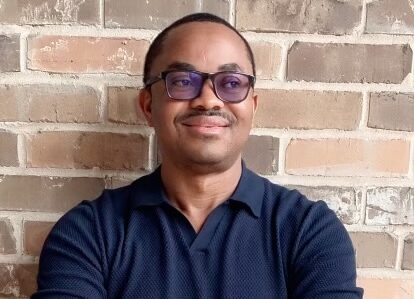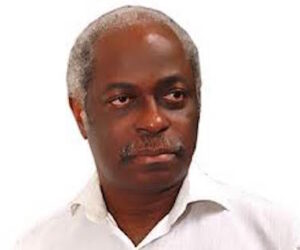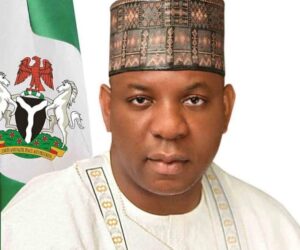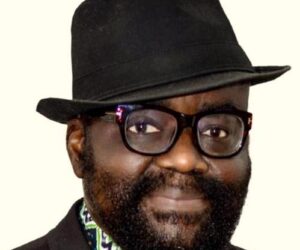In the great city of Kaduna, Northern Nigeria’s political capital, there is a man who, though trained as a doctor, is better known as a Sheikh. He hails from a long line of Islamic scholars, and his father was even a Grand Khadi. He preaches from the pulpit, prays with the pious, and to the faithful, he appears a voice of reason. He wears rich, flowing robes whiter than snow. Yet, when the echoes of terror rose from the forests, it was his own voice that answered, not in condemnation, but in defense. Beneath the measured cadence of his sermons lies a perilous affection for men whose hands drip with rivers of cold blood.
He claims to follow the Holy Prophet (peace be upon him), but his loyalty is not to the divine; it is to bloodlines and performative religiousity. The bandits who have turned Nigeria’s northwest into a theatre of grief share his tongue, his tribe, his religion and his sympathies. Where others see criminals, he sees kinsmen.
When soldiers moved against the terrorists, the Sheikh denounced them as heretics. “Among the military,” he assured the bandits, “there are Christians and Muslims. It is the Christians who are killing you, only to sow discord.” The forest seemed to applaud. To the killers, he was no critic; he was a cleric who soothed conscience with the balm of tribal loyalty.
On television, he warned journalists to cease labeling the bandits as criminals, accusing the press itself of criminality merely for reporting the truth. He scolded reporters for naming terrorists, as if the articulation of truth were a graver sin than the slaughter itself.
When three hundred schoolgirls were abducted from their dormitories in Jangebe, Zamfara State, the nation wept. But the Sheikh reached for his phone to defend the abductors. “They are not the ones who kidnapped the girls,” he insisted. “It is a splinter group.” It was a line better suited to a gang spokesman than a cleric.
A journalist who once followed the bandits deep into the forests, recounted an encounter with their leader, Kachalla Halilu, who paused and said, “Make sure you get it right. I am shugaban ’yan ta’addan Arewa.” His lieutenant translated: “He is the leader of all terrorists.” Yet, the Sheikh, instead of condemning them, became their chief apologist, polishing their image with words steeped in deception.
The irony is stark. The same Sheikh who found compassion for those who butchered children justified the army’s slaughter of Shiites during the Quds Day procession in 2014, dismissing their deaths as mere inconvenience. For him, cruelty was negotiable: when it bore the face of his tribe, it became grievance; when it did not, it became rebellion. He once claimed his mission was peacebuilding. Yet his peace is a fragile truce built on selective morality and silence.
His words not only carry the stench of ethnic favoritism and political duplicity.
they actively emboldens terror. By defending bandits, minimizing their crimes, and portraying them as “misunderstood,” he sends a clear message: murder can be excused, tribal loyalty trumps justice, and terror carries no real consequence. For kidnappers, killers, and arsonists, such words are not abstract sermons; they are validation, turning fear into pride and brutality into a perceived moral enterprise.
Worse, the government’s response seems shaped by his counsel. Rather than holding him accountable, authorities appear to heed his advice, opting to negotiate or appease the criminals he champions. Each concession, each compromise, reinforces the idea that violence pays and accountability is optional. In effect, terror is rewarded rather than cursed.
In this way, the Sheikh does not just speak for terror; he creates the conditions for its survival, while the state, whether through fear or complicity, allows it to flourish.
The tragedy is not merely that he chose the wrong side; it is that he chose it while holding the Qur’an, even as it instructs:
“O you who believe, be persistently standing firm in justice, witnesses for Allah, even if it be against yourselves or parents and relatives.”
— Surah An-Nisa (4:135)
Yet he placed tribe and religion above truth, loyalty above Allah. He ignored another command:
“Do not mix truth with falsehood, or conceal the truth while you know it.”
— Surah Al-Baqarah (2:42)
Conceal he did, meticulously and deliberately, twisting sacred language into a tool of justification.
History will not remember him as a reformer or a scholar, but as the man who stood between victims and their killers, measured the two, and chose to sympathize with the killers. Yet the deeper tragedy is not the Sheikh himself, but the silence that protects him. Why have Nigerian authorities never subjected him to questioning? Why has no genuine effort been made to uncover the true nature of his ties to these bandits?
Politicians eagerly court his shenanigans, and the Nigerian government even funded his pilgrimage through the Hajj Commission. Yet Saudi authorities, alarmed by his notorious conduct, barred him from Medina, a rare and unmistakable condemnation from Islam’s holiest city. There, in the shadow of divine sanctity, a man who invokes God’s name while defending terror found no sanctuary.
Terror will never be vanquished while those who bless it remain untouched. As long as sympathizers and collaborators roam freely and are cuddled by those that control the levers of power, the flames will persist in the land, fueled by a nation too timid to name its friends of darkness.
For evil triumphs not merely through violence, but through the preachers who defend it and a governments that looks the other way.
Osmund Agbo is a medical doctor and author. His works include Black Grit, White Knuckles: The Philosophy of Black Renaissance and a fiction work titled The Velvet Court: Courtesan Chronicles. His latest works, Pray, Let the Shaman Die and Ma’am, I Do Not Come to You for Love, have just been released. He can be reached through: [email protected]










